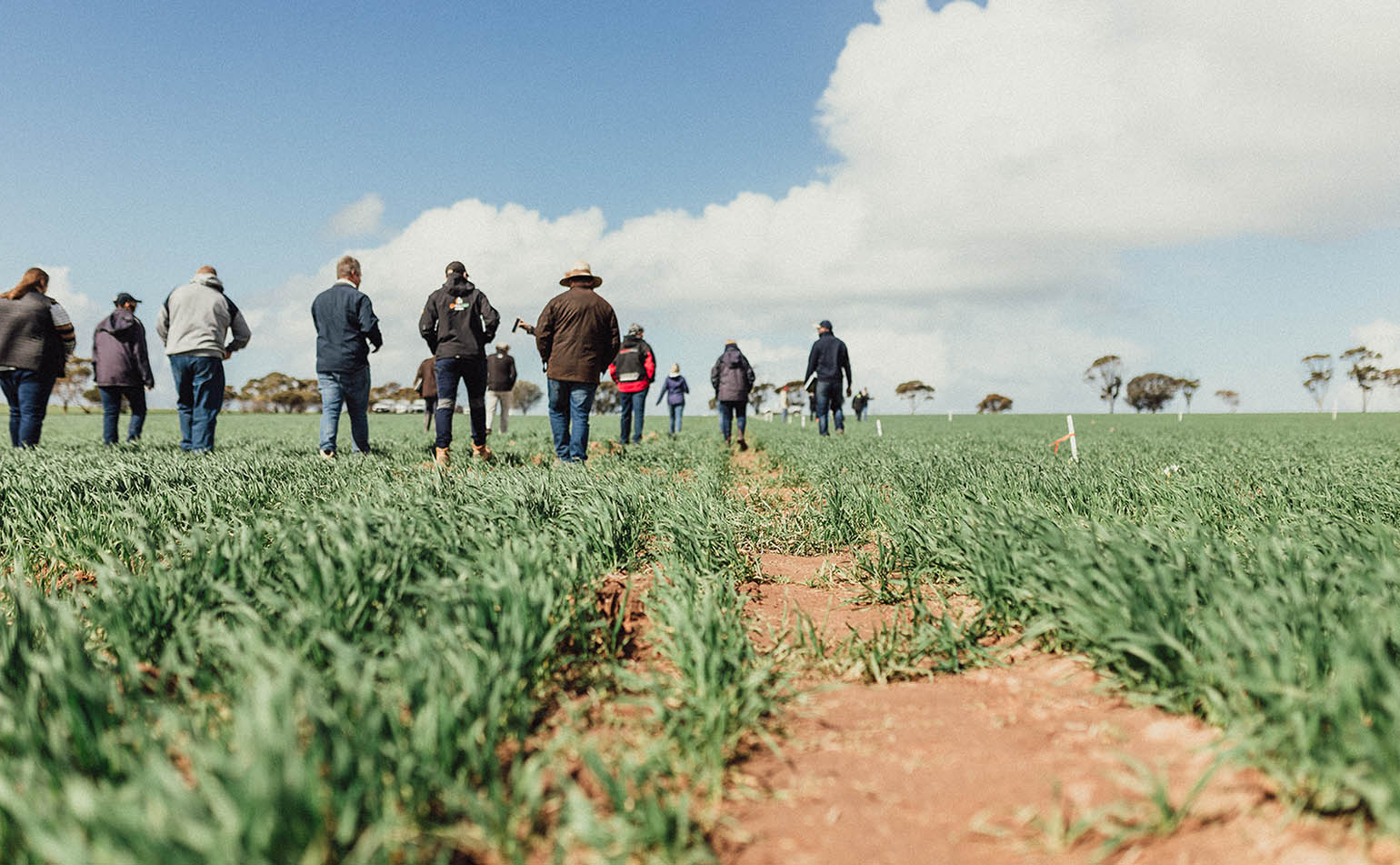While profitability is often the driving force behind adoption of new farming practices, there are many other factors at play. Emotional, social, community, environmental and other emerging risk factors can also impact adoption.
A Soil CRC project led by Dr Nathan Craig of West Midlands Group in Western Australia is creating a reporting tool to communicate the risks and benefits of new farming technologies and practices.
Dr Craig said the reporting tool will enable grower groups and extension agencies (our next users) to better deliver information to farmers, so they can weigh up the pros and cons of adopting new practices and make informed decisions.
“A critical feature of this project is that it is led by grower groups, ensuring we have pragmatic input to help deliver a reporting tool with real-world application,” he said. “Joining West Midlands Group are Corrigin Farm Improvement Group and Central West Farming Systems, with Charles Sturt University rounding out the research team.
“My focus is on developing practical tools that can be implemented by grower groups and other next users, so we can more effectively get the word out about the great work being done in the Soil CRC,” Dr Craig said.
“While it is good to have a large role for grower groups in this project, the support from Charles Sturt University in developing the reporting tool is invaluable. The Soil CRC offers a fantastic opportunity to access high level skills in a project, so that we can develop really robust tools for the industry.”
This philosophy has also been the driving force behind Dr Craig’s latest Soil CRC project that aims to package many of the tools developed in the Soil CRC and available to next users, to overcome bottlenecks in extension and adoption.
“Innovation is not just about developing new shiny things; innovation more commonly comes from using existing tools in new ways to solve a prevailing problem,” he explained.
“Better connecting farmers with the new practices and technology they need is something that benefits the whole agricultural industry and is why we’re so keen to be involved in this space.”

